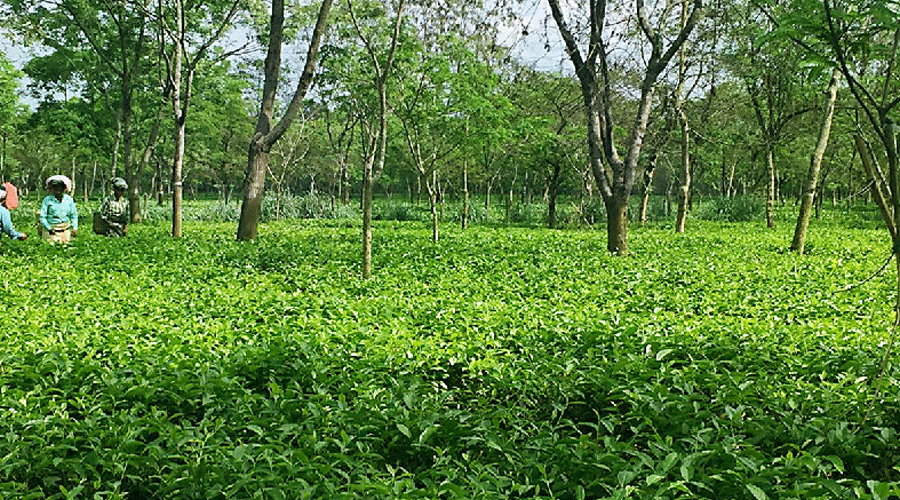Small tea growers in north Bengal have written to the Mamata Banerjee government for a policy for the regularisation of their land.
In a letter sent to Smaraki Mahapatra, the principal secretary of the state land and land reforms department, the growers said most of them did not have their land records updated as no initiative had been taken by the state government so far in this regard.
“At a time when the state government is converting leasehold land into freehold land across Bengal, we have flagged a longstanding demand of the sector. The state should come up with a policy to regularise the land of small tea growers. As their land records have not been updated, they are deprived of a number of benefits and assistance,” said Bijoygopal Chakraborty, the president of the Confederation of Indian Small Tea Growers Associations (Cista).
In 2001, when the Left Front government was in power, it had fixed a cut-off date (June 30, 2001) and had said any small tea plantation which had come up after that date is an unauthorised plantation.
“Small tea plantations were mushrooming across north Bengal those days. The notification was made to avoid change in the crop pattern as the plantations came up on agricultural land,” said an observer.
However, with the demand for tea increasing both in domestic and international markets, tea plantations started coming up in the districts of Darjeeling, Jalpaiguri, Cooch Behar and North Dinajpur.
“As of now, the small tea sector contributes around 62 per cent of Bengal’s total tea production. There are around 50,000 small tea plantations in this region but of them, only 7,321 plantations are legal according to the cut-off date. All the remaining plantations still bear the unauthorised tag. We want this to change and hence asked for a policy,” said Chakraborty.
He said altogether, around 15 lakh people were directly and indirectly associated with this sector.
“The small tea sector has created huge employment in north Bengal, especially in rural areas. It has also helped in the region’s economic growth and we believe the state government should act on it. Some other states like Kerala, Tamil Nadu, and Assam have already introduced land policy for the growers,” the Cista president added.
Such regularisation, the growers said, will also bring revenues to the state exchequer.
“If the initiative is taken, the government will get ‘salami’ and lease rent as there are stretches of government land on which there are plantations. Those who have plantations on their own land will also have to pay certain charges for the regularisation,” said a senior grower based in Jalpaiguri.











